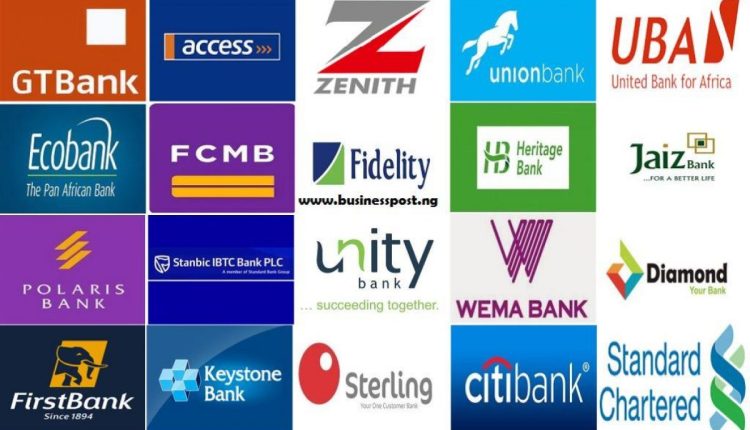BREAKING: Zenith, Access, UBA, Five Other Banks Rake in N165.27bn from E-Banking in Q1 2025 Despite Fintech Pressure

Despite the threat posed by Fintech companies, which entice customers with zero charges on cash deposits and transfers, Access Holdings Plc, United Bank for Africa Plc (UBA), and six other top Nigerian banks were able to generate N165.27 billion from electronic-banking income in the first quarter of 2025.
This represents an increase of 22.3 per cent from the N135.08 billion the eight banks reported in the first quarter of 2024.
The six other banks are: Zenith Bank Plc, FBN Holdings Plc, Stanbic IBTC Holdings Plc, FCMB Group Plc, Wema Bank Plc, and GTCO Plc.
THISDAY gathered that the increase in electronic banking income from Point of Sales (PoS), Unstructured Supplementary Service Data (USSD), Automated Teller Machine (ATM), and Internet banking contributed to the significant increase in fees and commission on the backdrop of growth in customers’ base.
Nigerian banks are competing with Fintech companies such as MoMo Payment Service Bank (MoMo PSB), a Fintech subsidiary of MTN Nigeria, Airtel SmartCash, Opay, Palmpay, and others that operate zero charges on fund transfer to another Fintech company or banks.
As technology evolves, customer demands continue to affect how businesses operate especially in the banking sector.
In recent times, fintech startups have raised the bar, offering customers easier, faster, and cheaper financial services, particularly in areas such as zero transfer fees, attractive interest rates on savings, full online banking experience, speed, and simplicity.
Related News:
Despite Economic Challenges, Zenith, Access, UBA, GTCO, Two Others Generated N3.11tn Profit in 2023
Despite 150 Companies and $27bn Investment in Nigeria, India Wants More, Says Envoy
Zenith, Fidelity, 8 Other DMBs Begin 2025 Strong with N1.83tn Q1 Profit, Despite Inflation,…
These competitive advantages endear them to an increasing number of customers and strengthen their position in the industry.
In the period under review, Access Holdings reported N48.35billion, about a 44.8 per cent increase over the N33.4billion reported in Q1 2024, while UBA generated N47.8 billion from e-banking income, representing an increase of nearly eight per cent from the N44.4 billion in Q1 2024.
Zenith Bank declared N16.17 billion E-banking income in Q1 2025, a decline of 19 per cent from N19.97billion in Q1 2024, GTCO posted N17.06 billion in Q1 2025, a growth of 51 per cent from N11.3billion reported in Q1 2024.
First Holdco closed Q1 2025 with N20.14 billion E-banking income in Q1 2025, representing an increase of 19 per cent from N16.9billion in Q1 2024, as Wema bank announced N10.85billion income from E-banking income in Q1 2025, up by 259.9 per cent from N3.02 billion in Q1 2024.
In addition, Stanbic IBTC Holdings posted N1.09 billion in Q1 2025, gaining 1.11 per cent from N1.08 billion in Q1 2024 and FCMB Group declared N3.8 billion E-banking income in Q1 2025, a decline of 26 per cent from N5.09 billion reported in Q1 2024.
In the period under review, THISDAY learnt that these eight banks reported N643.9 billion in fees and commission income in Q1 2025, about 31 per cent increase over the 491.72 billion reported in Q1 2024.
Financial market analysts said the management of some of the banks before now lacked ideas on how to find alternative sources of fees and commissions.
They expressed that many commercial banks were engaging in exorbitant charges of customers and noted that the Central Bank of Nigeria had failed to sanction such banks.
Commenting, Investment Banker & Stockbroker, Mr. Tajudeen Olayinka stated that the growth in these nine banks’ fees and commissions was largely underlined by income from increased transaction velocity across all channels and other e-businesses as well as credit-related fees and commissions.
According to him, “banks gain traction on income from these lines as they extend retail and loan offerings. These banks witnessed increased transactions in Q1 2025 and it is expected to impact their fees and commission.’’
Aside from E-banking income, the eight banks generated N73.92 billion for maintaining customers’ current accounts in Q1 2025, representing an increase of 14.4 per cent from N64.64 billion in Q1 2024.
The CBN had indirectly reintroduced the Commission on Turnover fee as the Current Account Maintenance fee. The apex bank in 2013 commenced the phased reduction of the CoT, which terminated with the zero CoT charge this year.
But in a circular to banks recently, the CBN replaced the CoT with CAM but subject to a maximum of N1 per N1,000 mille.
The circular was titled, “Introduction of Negotiable Current Account Maintenance Fee Not Exceeding N1/mille.
It stated, “The revised guide to bank charges which came into effect on April 1, 2013, provides for a phased elimination of the COT charges in the Nigerian banking industry. Under the guidelines, a zero COT regime was to come into effect from January 2016.”
The CBN noted that while the gradual phase-out was being observed, some banks continued to charge account maintenance fees in addition to the reduced COT rate, which in effect amounted to a double coincidence of charges.
It stated, “The CBN is not oblivious of the impact of declining crude oil prices, operation of Treasury Single Account, and other market turbulence on the viability and stability of the banking system.
“In furtherance of the mandate to promote and safeguard a sound financial system in Nigeria, banks are by this circular reminded that the 2016 Zero COT regime as jointly agreed during the 311th Bankers Committee meeting of February 12, 2013, has come into effect. In the interest of the stability of the banking system, a Negotiable Current Account Maintenance Fee not exceeding N1 per mille may be charged in respect of all customer-induced debit transactions. Please ensure strict compliance.”
